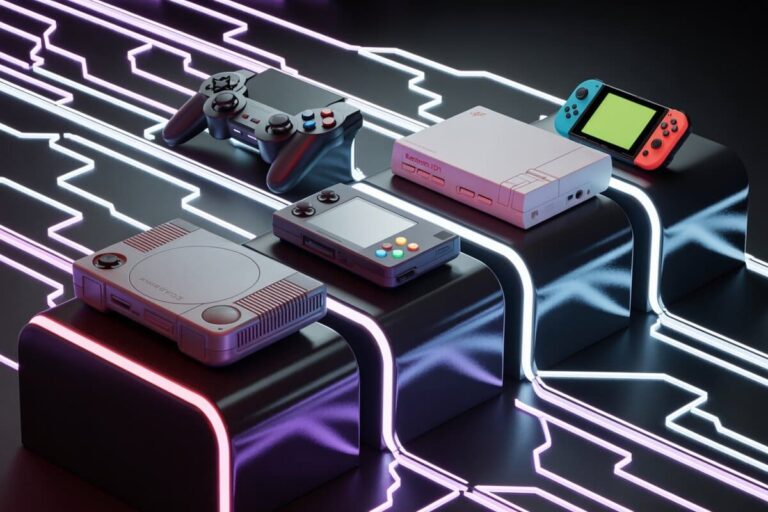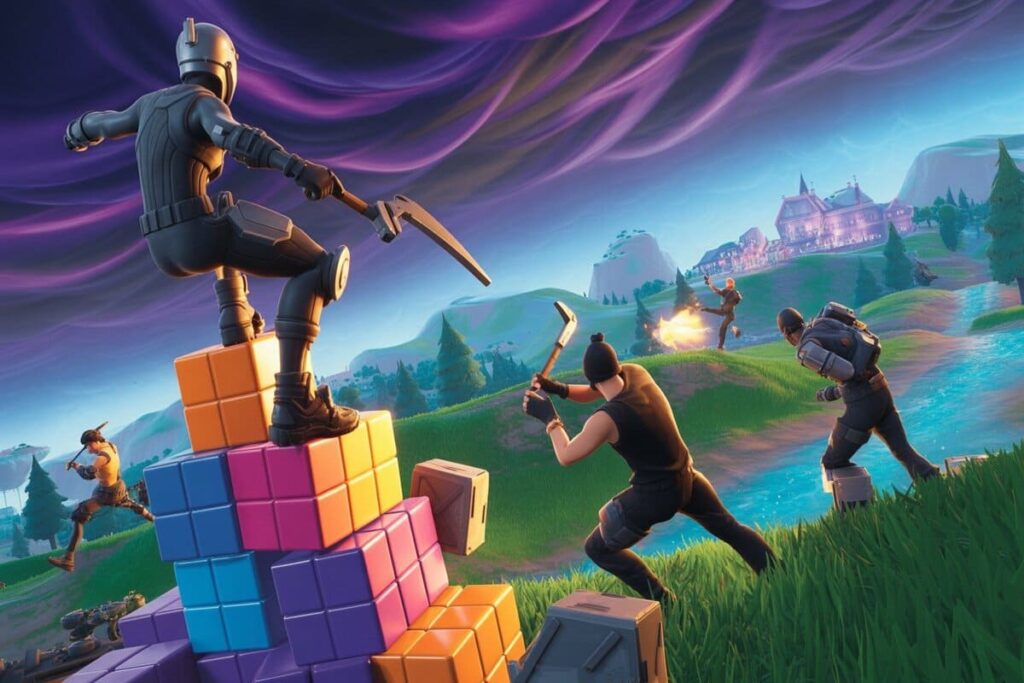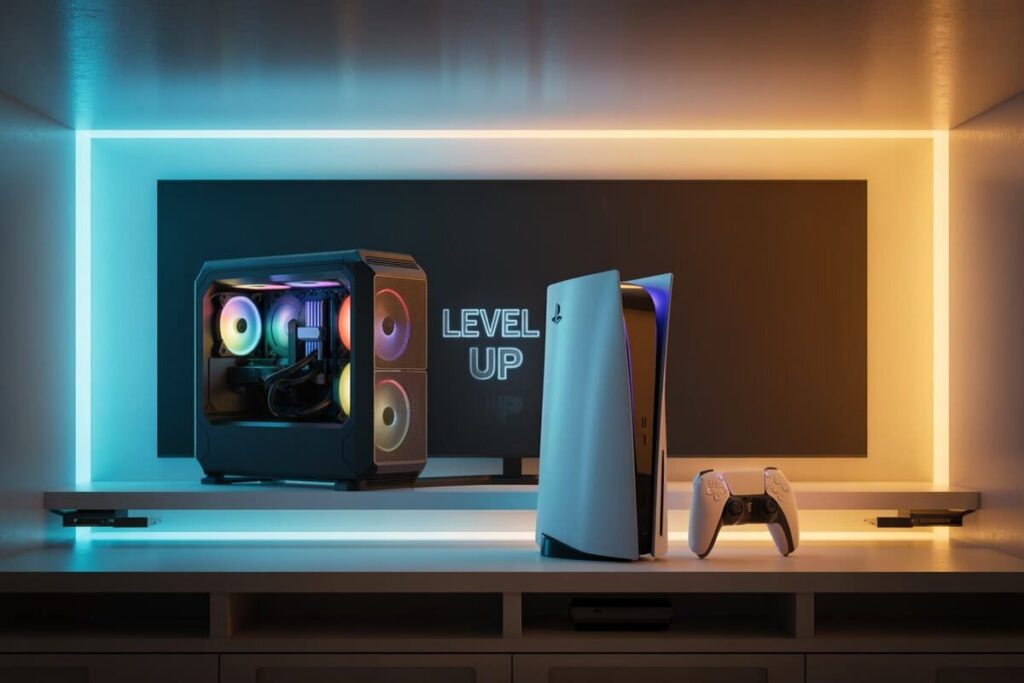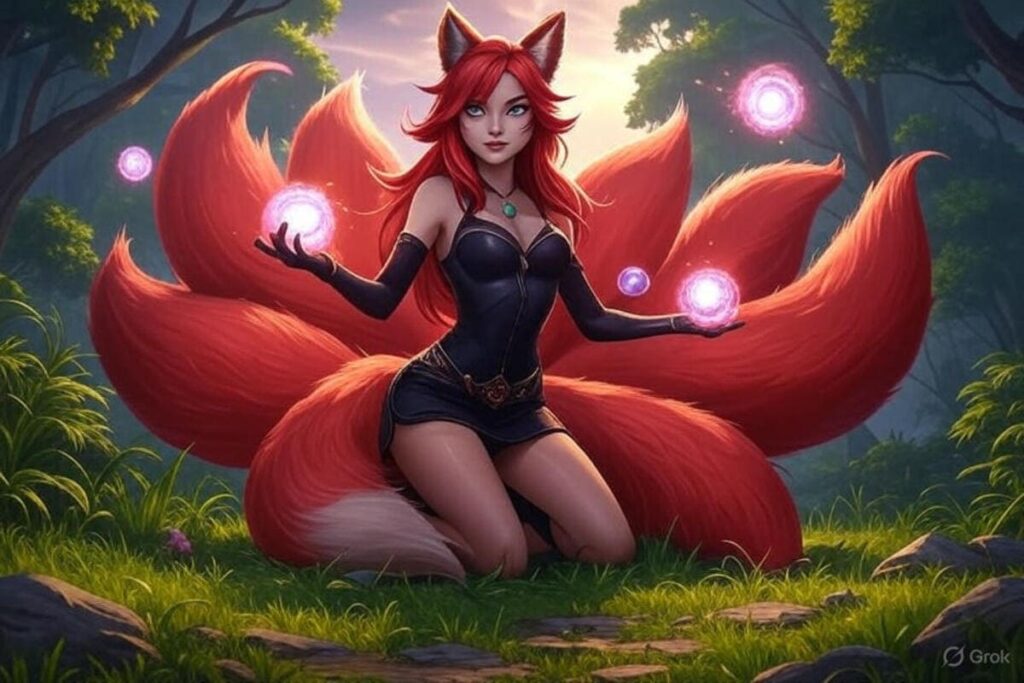Have you ever wondered which gaming console captured the world’s heart?
Since the 1970s, consoles have transformed entertainment, and some have stood out by selling millions of units and defining generations.
In this article, we unveil the top 5 best-selling gaming consoles of all time, complete with impressive numbers, fascinating stories, and what made them so popular.
Get ready for a nostalgic journey and discover why these machines remain icons of gaming culture!
Why Are These Consoles Legendary?
The best-selling consoles didn’t reach the top by chance. They combined innovation, iconic games, and brilliant marketing strategies.
Whether through portability, blockbuster exclusives, or groundbreaking features like DVD playback, each of these giants left its mark.
Let’s dive into the rankings, updated through 2025, to see which consoles dominated the market and why.
1. PlayStation 2 (PS2) – 160 Million Units Sold
Released by Sony in 2000, the PlayStation 2 is the undisputed king, with approximately 160 million units sold worldwide. Why was it so successful? First, it was more than a console: it was an affordable DVD player in an era when standalone players were expensive. This attracted families and non-gamers alike. Second, its massive game library of over 4,000 titles included classics like Grand Theft Auto III, Final Fantasy X, and Metal Gear Solid 2. Backward compatibility with PS1 games also secured a loyal fan base from day one.
Key Features:
- Built-in DVD player.
- Backward compatibility.
- Massive game library.
Impact:
It redefined the market with 3D gaming and advanced storytelling.
Market Dominance:
Globally successful, especially in the U.S. and Europe.
2. Nintendo DS – 154.02 Million Units Sold
Released in 2004, the Nintendo DS revolutionized handheld gaming, selling 154.02 million units. Its dual screens, one of which was touch-sensitive, brought unprecedented innovation. Games like Mario Kart DS, Nintendogs, and Brain Age attracted not just gamers but also casual players, including kids and seniors. Built-in Wi-Fi connectivity and a microphone enabled unique multiplayer and interactive experiences.
Key Features:
- Dual screens with touch functionality.
- Accessible game library.
- Universal appeal.
Impact:
It popularized handheld gaming and expanded the gaming audience.
Market Dominance:
Strong presence in Japan and the U.S., with consistent sales in Europe.
3. Nintendo Switch – 146 Million Units Sold
Released in 2017, the Nintendo Switch is the only console still in production on this list, with 146 million units sold as of June 2024. Its versatility as a hybrid console—playable on TV or as a handheld—won over gamers worldwide. Titles like The Legend of Zelda: Breath of the Wild and Animal Crossing: New Horizons (a pandemic-era phenomenon) fueled its success. The Switch’s ability to cater to casual and hardcore gamers, combined with a robust game library, keeps it competitive.
Key Features:
- Hybrid design (home/portable).
- Exclusive games.
- Family-friendly appeal.
Impact:
It surpassed the PS2 in the U.S. with 46.6 million units sold.
Market Dominance:
Global, with strong performance in the U.S. and Japan.
4. Game Boy (and Game Boy Color) – 118.69 Million Units Sold
Launched in 1989, the Game Boy and its successor, the Game Boy Color, sold a combined 118.69 million units. This Nintendo handheld defined gaming on the go. Its durability, long battery life, and iconic games like Tetris and Pokémon Red/Blue made it a cultural phenomenon. The Game Boy Color, with its vibrant screen, broadened its appeal while maintaining backward compatibility with original Game Boy games.
Key Features:
- Portability.
- Long battery life.
- Pokémon as a flagship franchise.
Impact:
It created the modern handheld gaming market.
Market Dominance:
Global, especially in Japan and North America.
5. PlayStation 4 (PS4) – 117.2 Million Units Sold
Released in 2013, the PlayStation 4 closes out the top 5 with 117.2 million units sold. After the rocky launch of the PS3, Sony hit its stride with the PS4, focusing on games and performance. Exclusives like God of War, Marvel’s Spider-Man, and The Last of Us Part II elevated the console to new heights. Integration with services like PlayStation Plus and streaming also attracted millions.
Key Features:
- Blockbuster exclusives.
- PlayStation Plus integration.
- Advanced graphics.
Impact:
It dominated the eighth generation, outperforming the Xbox One.
Market Dominance:
Strong in the U.S., Europe, and Asia.
What Made These Consoles Dominate?
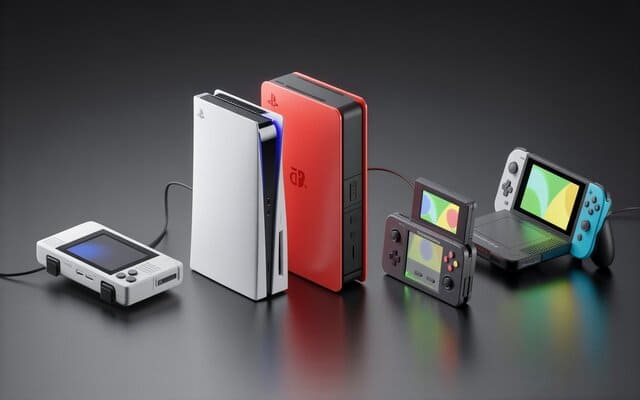
Each console on this list brought something unique:
- Technological Innovation: PS2 with DVDs, DS with dual screens, Switch with a hybrid design.
- Memorable Games: Titles like GTA, Pokémon, and Zelda defined generations.
- Accessibility: Competitive pricing (PS2 as a DVD player) or portability (Game Boy, Switch).
- Market Strategy: Nintendo and Sony attracted diverse audiences, from casual to hardcore gamers.
Impressive Numbers:
- Together, these consoles have sold nearly 700 million units.
- Sony dominates with three consoles in the global top 10 (PS2, PS4, PS1).
- Nintendo shines with its handhelds and the ever-growing Switch.
Choosing a Console Today
While these consoles are legendary, the 2025 market offers modern options like the PlayStation 5 (77.7 million units sold by April 2025) and Xbox Series X/S. For nostalgia seekers, retro Game Boy versions or PS2 emulators are trending.
Consider the Following:
- Exclusive Games: PS5 boasts Spider-Man 2, while the Switch shines with Zelda.
- Portability: The Switch remains unmatched for gaming on the go.
- Budget: Older consoles can be found in used markets.
Pro Tip: Search “best consoles 2025” to compare modern options.
The Future of Consoles
The Nintendo Switch is on track to surpass the PS2 globally, especially with the Switch 2 launching in 2025.
Sony, with its PS5 Pro, focuses on 8K graphics and technologies like PSSR. Meanwhile, Microsoft emphasizes services like Xbox Game Pass.
The future promises innovations like augmented reality and cloud gaming, poised to reshape the market.
Conclusion: Icons That Shaped Entertainment
The PlayStation 2, Nintendo DS, Nintendo Switch, Game Boy, and PlayStation 4 are more than just consoles; they’re cultural milestones that defined how we play.
With nearly 700 million units sold collectively, they demonstrate the power of gaming to unite generations.
What’s your favorite console? Have you ever played on one of these giants?

